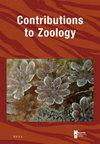A new perspective on the molecular dating of the brown trout complex with an extended phylogeographic information on the species in Serbia
IF 2.2
2区 生物学
Q1 ZOOLOGY
引用次数: 0
Abstract
To elucidate the historical biogeography of a species, the patterns of population divergence must be understood, and the evolutionary history of the species must be accurately known. For brown trout (Salmo trutta complex), estimating divergence times remains a challenge due to the lack of well-defined time calibration points and insufficient phylogeographic coverage in previous studies. The present work aims to improve molecular dating of mitochondrial control region sequences by using a multicalibration framework based on the latest paleogeological evidence for dating the origin of Lake Ohrid and two available Salmo fossils, including the overlooked Salmo immigratus. Our results clearly show that, contrary to common belief, the major divisions within the brown trout occurred in the Late Pliocene, not the Pleistocene. The Pliocene origin suggests that the brown trout lineages did not form because of geo(hydro)morphological changes during glaciation cycles but may be the result of orogeny and drainage evolution. In addition, increased sampling, particularly in Serbia, led to the identification of a new haplogroup (da-int) occupying an intermediate position with respect to da-es and da-bs haplogroups. While the control region can delineate brown trout lineages, its phylogenetic resolution is limited, so even extensive sampling could not further resolve the lineage level polytomies.棕鳟复合体的分子定年的新观点与扩展系统地理信息的物种在塞尔维亚
为了阐明一个物种的历史生物地理学,必须了解种群分化的模式,并且必须准确地了解该物种的进化史。对于褐鳟(Salmo trutta复合体)来说,由于缺乏明确的时间校准点和先前研究中的系统地理学覆盖范围不足,估计分化时间仍然是一个挑战。目前的工作旨在通过使用基于最新古地理证据的多校准框架来改进线粒体控制区序列的分子定年,以确定奥赫里德湖的起源和两个可用的萨尔莫化石的年代,包括被忽视的萨尔莫移民化石。我们的研究结果清楚地表明,与人们普遍认为的相反,褐鳟的主要分裂发生在上新世晚期,而不是更新世。上新世的起源表明,褐鳟谱系的形成并不是因为冰川作用周期期间的地质(水文)形态变化,而是造山运动和排水进化的结果。此外,采样的增加,特别是在塞尔维亚,导致发现了一个新的单倍群(da-int),它相对于da-es和da-bs单倍群处于中间位置。虽然控制区可以描绘褐鳟谱系,但其系统发育分辨率有限,因此即使是广泛的采样也无法进一步解析谱系水平的多胞体。
本文章由计算机程序翻译,如有差异,请以英文原文为准。
求助全文
约1分钟内获得全文
求助全文
来源期刊

Contributions to Zoology
生物-动物学
CiteScore
4.00
自引率
4.50%
发文量
16
审稿时长
>12 weeks
期刊介绍:
Contributions to Zoology solicits high-quality papers in all systematics-related branches of comparative zoology (including paleozoology). Preference will be given to manuscripts dealing with conceptual issues and to integrative papers (e.g., ecology and biodiversity, morphology and phylogeny and character state evolution, phylogeny and historical biogeography, systematics and bioinformatics, bioinformatics and biodiversity, habitat disturbance and biogeography, etc.). Reviews and alpha-taxonomic contributions are considered for publication, but acceptance will depend on their high quality and exceptional nature.
 求助内容:
求助内容: 应助结果提醒方式:
应助结果提醒方式:


